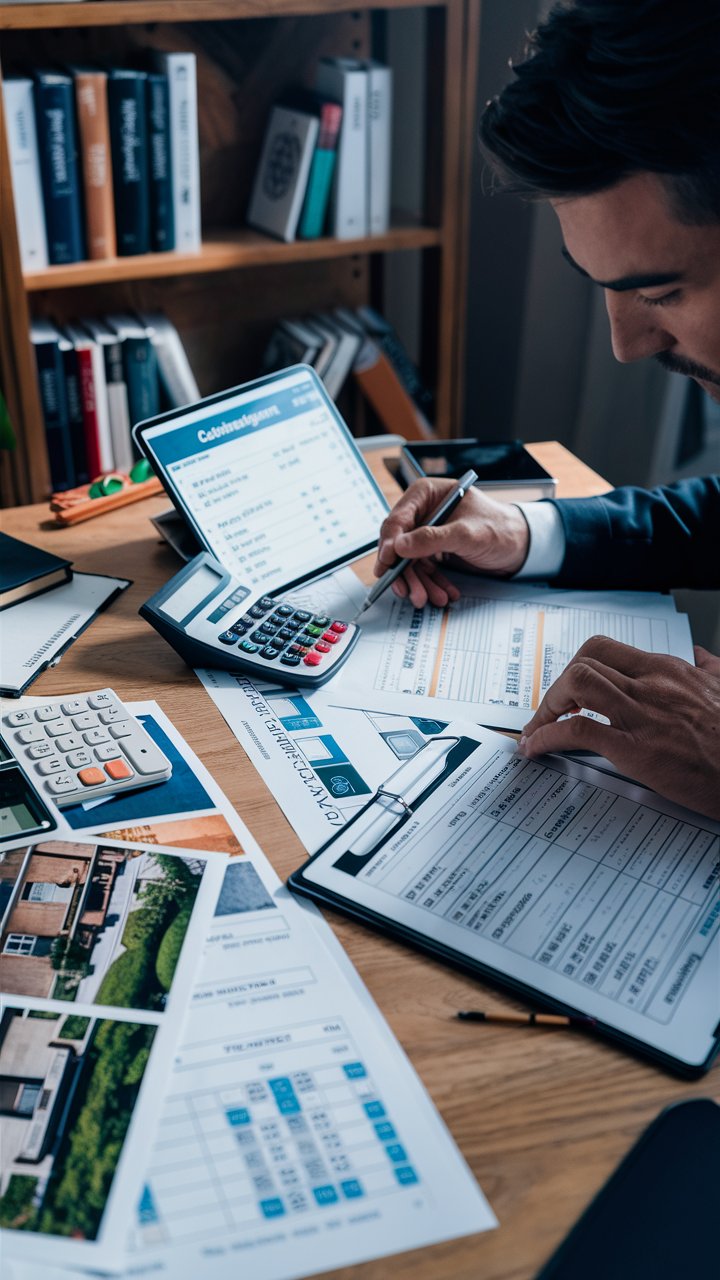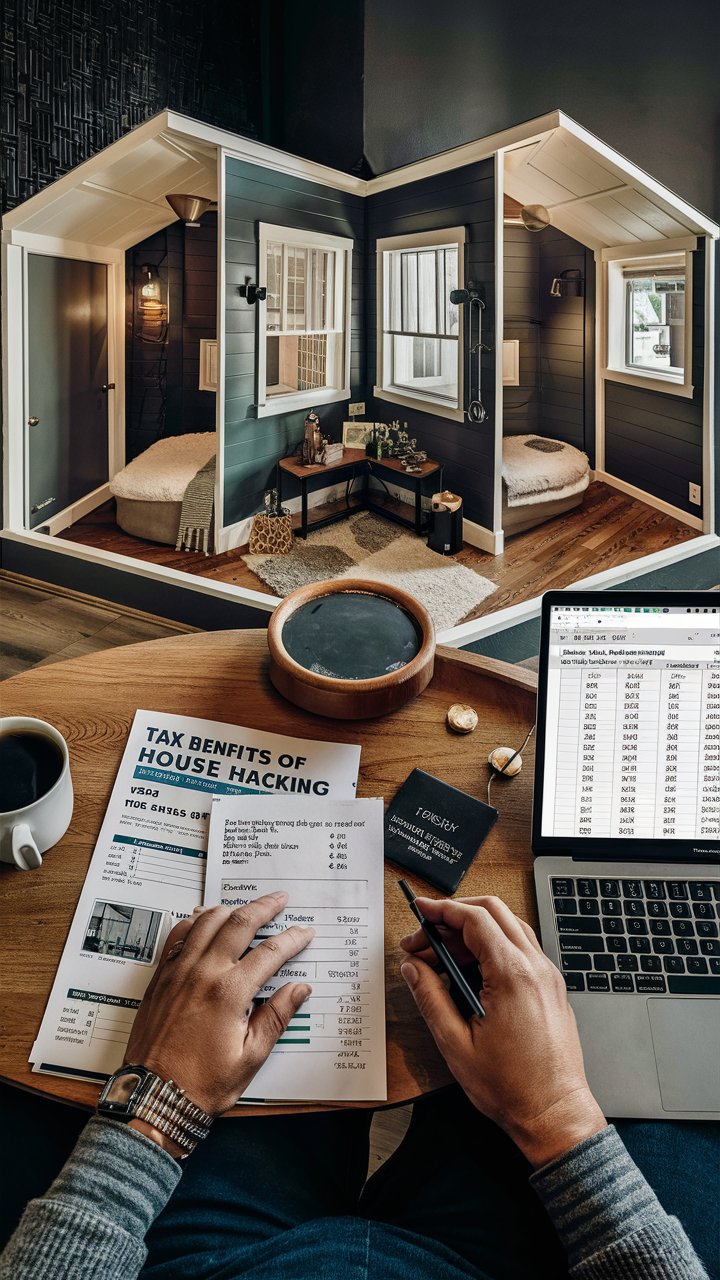Introduction
When venturing into the world of flipping houses, each flipper must navigate through a myriad of closing costs, rehab efforts, and financing challenges. A precise statement of all utility and invoice details is essential. Employing accounting software can streamline this process, ensuring a financial house in order and allowing flippers to focus on the hard work of transforming properties. This setup aids in tracking each dollar spent and earned, making every project not just a venture but a profitable one.
The journey from purchasing to selling a flipped property encompasses various stages, from securing insurance and engaging contractors to managing transactions and handling property taxes. Effective bookkeeping and strategic planning are pivotal in maintaining order and maximizing returns. By adhering to these practices, flippers can ensure that their investment pays off, meeting all regulatory requirements and reaping the benefits of their labor.
Key Takeaways
- Utilizing accounting software streamlines the tracking of all costs related to flipping houses, ensuring a profitable end-to-end process.
- From securing insurance to managing property taxes, effective bookkeeping and strategic planning are essential for maximizing returns in house flipping.
- Understanding capital gains tax and using deductions for property improvements are critical for minimizing tax liabilities.
- Adhering to IRS guidelines distinguishes between real estate dealers and investors, impacting the tax treatment of profits.
- Creating a detailed budget for renovations and choosing high-ROI improvements help prevent cost overruns and enhance property value.
- Leveraging tax benefits from rental properties and house hacking can significantly reduce financial burdens while generating income.
Capital Gains and Costs: The Basics of Accounting for House Flipping
Flippers must meticulously track every expense related to property flipping, including purchase costs, renovation expenses, and incidental fees like inspections and appraisals. A detailed log ensures that all capital investments are accounted for, maximizing potential capital gain deductions during tax filings. Tools like specialized real estate investment software can automate much of this process, helping flippers stay organized and compliant.
Tracking Expenditures in Flipping
Flippers must meticulously track every expense related to property flipping, including purchase costs, renovation expenses, and incidental fees like inspections and appraisals. A detailed log ensures that all capital investments are accounted for, maximizing potential capital gain deductions during tax filings. Tools like specialized real estate investment software can automate much of this process, helping flippers stay organized and compliant.
Navigating Capital Gains Tax
Understanding capital gains tax is essential for house flippers. This tax is levied on the profit made from selling a property at a higher price than it was bought. Flippers can reduce their tax burden by keeping detailed records of property improvements, which can be deducted from the taxable gain. Consulting a tax professional can provide strategies to further minimize this liability.
IRS Guidelines and Tax Implications for Property Flipping
The IRS has clear guidelines on what constitutes a real estate dealer versus an investor, significantly impacting tax obligations. Flippers classified as dealers face different tax treatments compared to investors, generally leading to higher taxes on profits. Understanding these distinctions and maintaining proper records can help flippers navigate their tax responsibilities more effectively.
Key Tax Considerations for House Flippers
Classification as Dealer vs. Investor:
- Dealers are treated as engaging in a business, with profits considered as ordinary income subject to self-employment taxes.
- Investors typically benefit from capital gains treatment, which may result in lower tax rates depending on the holding period of the property.
Allowable Deductions for Property Flippers:
- Direct expenses such as costs for materials, labor for improvements, and any marketing expenses are fully deductible.
- Indirect expenses including interest on loans and property taxes can also be deducted, which can significantly reduce taxable income.
Special Considerations for Short-term Holdings:
- Properties held for less than a year are subject to short-term capital gains, taxed at the regular income tax rate.
- Leveraging strategies such as the 1031 exchange can defer capital gains taxes, although specific conditions must be met.
Impact of the Tangible Property Regulations:
- Flippers need to differentiate between repairs (which can be expensed immediately) and improvements (which must be depreciated over time).
Complying with IRS Flipping Rules
The IRS has clear guidelines on what constitutes a real estate dealer versus an investor, significantly impacting tax obligations. Flippers classified as dealers face different tax treatments compared to investors, generally leading to higher taxes on profits. Understanding these distinctions and maintaining proper records can help flippers navigate their tax responsibilities more effectively.
Deductions and Improvements
For tax purposes, the IRS allows flippers to deduct reasonable expenses incurred during the flipping process. These deductions can include costs related to property improvements, repairs, and even marketing. Keeping detailed records of these expenses helps ensure that flippers can claim the maximum allowable deductions, reducing their overall tax liability.
Maximizing Profits: Strategic Cost Management in House Flipping
Creating a detailed budget for property renovations is crucial for profit maximization. Flippers should allocate funds wisely, focusing on improvements that increase property value. Regular reviews of the budget during the project help ensure that spending aligns with the initial financial plan, preventing cost overruns that can erode profit margins.
Effective Budgeting for Renovations
Creating a detailed budget for property renovations is crucial for profit maximization. Flippers should allocate funds wisely, focusing on improvements that increase property value. Regular reviews of the budget during the project help ensure that spending aligns with the initial financial plan, preventing cost overruns that can erode profit margins.
Choosing High-ROI Improvements
Investing in renovations that offer high returns on investment is key to successful house flipping. Strategic improvements like kitchen remodels or adding an additional bathroom can significantly enhance the property’s marketability and sale price. Flippers should prioritize these high-impact areas to ensure the best financial outcome.
“Investing in yourself is the best thing you can do. Anything that improves your own talents; nobody can tax it or take it away from you.” – Warren Buffett
Rental Properties and House Hacking: A Flipper’s Guide to Tax Benefits
Owning rental properties offers several tax advantages, including deductions for depreciation, repairs, and management fees. These benefits can offset income, reducing overall tax liability. Flippers should understand the specific tax implications of owning and operating rental properties to fully leverage these benefits.
Tax Benefits of Rental Properties
Owning rental properties offers several tax advantages, including deductions for depreciation, repairs, and management fees. These benefits can offset income, reducing overall tax liability. Flippers should understand the specific tax implications of owning and operating rental properties to fully leverage these benefits.
Financial Advantages of House Hacking
House hacking can transform a personal residence into an income-generating asset. By renting out parts of their property, house hackers can cover a significant portion of their mortgage payments, effectively reducing their living expenses. Proper accounting for the income and expenses related to house hacking is essential to capitalize on the available tax deductions.
[lasso rel=”amazon-63″ id=”2144″]
Conclusion
As potential flippers embark on the journey of flipping a house, the essential elements of a successful flip involve navigating carrying costs, managing purchase price negotiations, and ensuring all expenses are tracked. A robust system to track every detail, from materials and labor to final sales, is crucial. Utilizing a CPA and comprehensive accounting software ensures that all capitalized costs and deductible expenses are accounted for, making the financial aspects clear and controlled.
The end goal of house flipping isn’t just to sell the property but to maximize profitability through strategic improvements and effective cost management. By understanding transfer taxes, managing repayment schedules, and adhering to property ladder theory, flippers can significantly impact their financial success. This process, supported by accurate bookkeeping and bank statements, ensures that each project can be both a valuable learning experience and a profitable venture.












